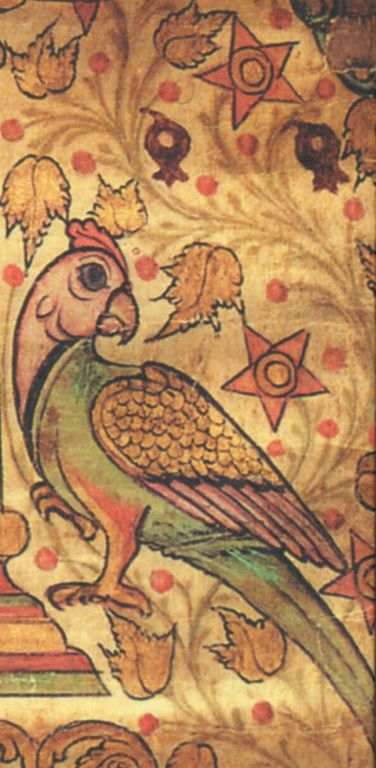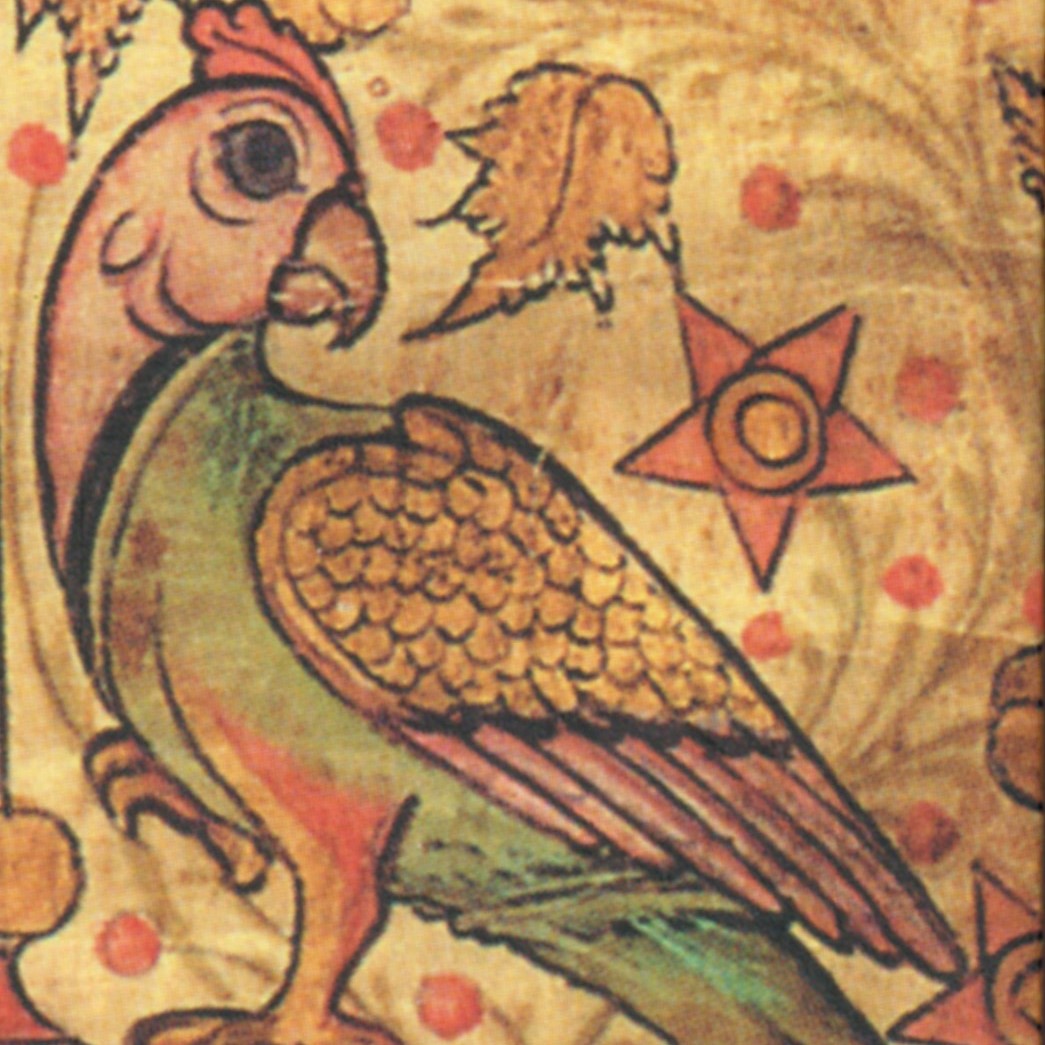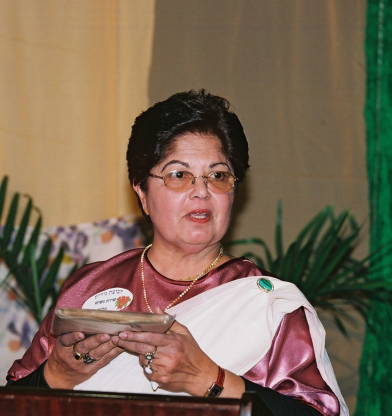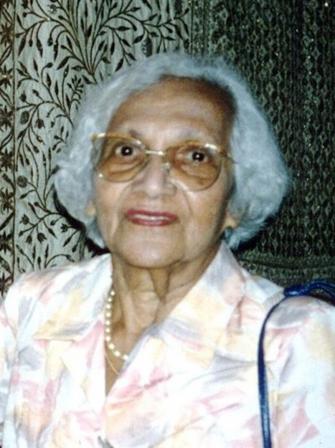1972
10. Tekkumbhagam—Kochi Synagogue Song
Leah E. Ben Eliyahu. Recorded by Barbara Johnson, Kiryat Motzkin, June 15, 1972. CD track 15; I-16.
Muḍiyāyi ninnu tān vāḻunnavaně
Munnammě oņḍāya paḷḷi tann
1. O God Most High, You are Ruler of the world,
You Who gave us the paḷḷi from before. (x2)
Tekkumbhagam people—together they came. (x2)
The assembly elders were addressing them: (x2)
“So now tell us why, why have you come?” (x2)
“For no other reason, the reason we have come, (x2)
Is just to build a paḷḷi—that’s what we desire.2. Just to build a paḷḷi—that’s what we desire.”
“So, very well then, you must not delay (x2)
To build the holy paḷḷi, the house of Tamburan.” (x2)
The assembly elders were addressing them: (x2)
“Can you accomplish this? Can you do this work?” (x2)
“The help of God comes first, and we shall follow then. (x2)
On a day that is auspicious, let us then begin.3. On a day that is auspicious, let us then begin.”
On the fifteenth day, the fifteenth of the month. (x2)
The beloved members—together they came. (x2)
A solid foundation for the paḷḷi they laid. (x2)
Music rang out, with booming of drums, (x2)
With fireworks exploding and blasting of the horn. (x2)
Women burst out loudly with sounds of kurava.4. Women burst out loudly with sounds of kurava,
Lifting their voices in songs of joyous praise. (x2)
The assembly elders were addressing them: (x2)
“Now for all of us you must make a feast.” (x2)
Everyone ate there and drank and rejoiced. (x2)
Paradesi members were addressing them: (x2)
“You must try to build it, try with all your heart.5. You must try to build it, try with all your heart.
You’ll gain from your effort an extra reward.” (x2)
Collecting small amounts, they added them up (x2)
To build the precious paḷḷi, so splendid and fine. (x2)
With heartfelt devotion, they praised God as one. (x2)
With elegant patterns, like a silversmith, (x2)
They made two lovely pillars, next to the doors.6. They made two lovely pillars, next to the doors.
For the Sefer most beloved they fashioned a place, (x2)
A place for the Sefer Torah to stand. (x2)
With fine woodcarvings, they fashioned the place. (x2)
With skillful carving, letters were inscribed. (x2)
In grandeur the Sefer Torah was installed (x2)
Inside the paḷḷi of Tekkumbhagam. (x2)
With elegant ornaments the Sefer was installed. (x2)
Blessings, blessings, may the paḷḷi be blessed. (x2)
With the greatest blessings may Tamburan be blessed.
Recorded in 1972, this song was sung in Israel by Leah Eliyavoo Ben Eliyahu. She was living in Israel with her son’s family from Ernakulam, and her daughter-in-law was from Mala, but I regret not knowing her own community of origin. It seems possible she may have been from Tekkumbhagam-Kochi, as she sang this Kochi song from memory, without hesitation, to the same melody she also used for singing the Mala Synagogue Song. Her sung version, which is transcribed and translated here, provides a useful alternative to the only written text, which is found in a Paradesi-Kochi notebook, and which conveys a more biased Paradesi perspective.[1]
The song recalls and celebrates the construction of the Tekkumbhagam Paḷḷi in Jewtown, Kochi, which was built sometime between 1489 and 1650.[2] Of the eight Kerala synagogues that were active until the 1950s, it is the only one that is no longer standing, but its magnificent Torah ark is preserved in the Magnes Collection of Jewish Art and Life at the University of California, Berkeley.[3] The synagogue’s name, which means “south-side,” has been puzzling, as it was located close to the northern end of Jewtown Road, in contrast to Kadavumbhagam, which is located to the south. There is a discredited but widely published theory that the Kadavumbhagam and Tekkumbhagam synagogues in both Kochi and Ernakulam were named for two synagogues in Kodungallur, without regard for their actual geographical locations. But the oral version of this song implies another explanation, local to Kochi.
Looking at the song’s first stanza, we see that it begins with praise for God who gave an “earlier synagogue.” Members of a Tekkumbhagam-Kochi family now living in Israel recall being told by elders that their community’s original synagogue was called “south-side” because it was located to the south of Kadavumbhagam. This explanation fits in with a local tradition that there was an old synagogue in Kochi, pre-dating Kadavumbhagam, located in the Kochangadi neighborhood directly south of Jewtown Mattanchery and associated with a stone inscription dated 1344.[4]
Continuing with the first stanza, “Tekkumbhagam people” approached a group of elders, requesting support or permission to build a new synagogue. It is not clear who these petitioners were, nor which assembly they approached. Perhaps an older paḷḷi to the south was still functioning and some of its members found their building too small or no longer usable, so approached their own elders for support in building a new paḷḷi. This explanation would fit in with the Kochangadi tradition. Or perhaps, by this time, the petitioners had become a faction within the newer Kadavumbhagam paḷḷi and were addressing the elders of that congregation. It is also possible, but less likely, that they were addressing the Paradesi elders, as interpreted in the written version. The oral version sung by Leah Ben Eliyahu portrays two separate events—first a request of support addressed to the “assembly elders” and later (in stanza 4) an offer of advice from Paradesi members.
Then urged to begin without delay, the Tekkumbhagam people established the foundation on a lucky full-moon day (the fifteenth of the month, auspicious in all the Kerala religious communities) and hosted a grand celebration for everyone, with food, drink, fireworks, the music of drumming and women’s songs, and the sound of joyous kuruva ululation. Then members of the Paradesi paḷḷi advised them that working “with all your heart” would bring an extra reward. Many small contributions were collected in aid of the building—a common practice in Kerala.
The descriptive details at the end of the song focus on the ark, with two pillars on either side of the doors, and the installation of the sefer Torah with elegant ornaments—a likely reference to the gold or silver cases, crowns, finials, and decorative chains that adorn Kerala Torah scrolls.
Whereas the oral version translated here portrays a harmonious and cooperative process, celebrated by “everyone,” the written text describes a different sequence of events, with elders of the Paradesi community alone granting permission, sponsoring and supervising the building of the synagogue, but not participating actively in its celebration. This is how the song was interpreted by the Paradesi elder A. I. Simon (1947, 38–41), who credited the Paradesi leader Yaakov Castiel for the entire project. A donor plaque dated 1689 honored Castiel for “completing the work” by building a surrounding wall, but by this time the synagogue itself may already have been in existence for at least forty years.
The Tekkumbhagam-Kochi Synagogue was demolished in the 1950s by a few of its members who stayed in India after the rest had left for Israel. A modern house built on the site is now used for commercial purposes.
______________________________________
[1] The Paradesi version is found in notebook B2-13, 20, with excerpts and discussion in Simon (1947, 38–41).
[2] See Eliyahu-Oron and Johnson 2021, 140–46 for a discussion of the possible dates and a detailed and illustrated description of the synagogue itself.
[3] For a photo and description of the ark, see Spagnolo 2013, 6–7, accession number 67.0.3.
[4] In her historical and linguistic analysis of this inscription, Gamliel (2018a, 46) dismisses the local Kochangadi tradition as “hearsay repeated by scholars.”







